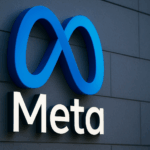In a significant policy shift, the White House has directed a cessation of paper check issuance and acceptance by the federal government. This decision marks a pivotal move towards increasing the efficacy and security of government transactions. The transition aims to enhance payment speed while providing citizens with a variety of modern, reliable options. The government intends to cease paper checks by September 2025, with a broader acceptance to digital methods as quickly as feasible.
The journey to this decision has seen various discussions and advancements over the years. There have been numerous calls for streamlining government payments in line with global trends. Previous discussions highlighted the inefficiencies and vulnerabilities associated with paper checks, contrasting them with digital solutions that bring both speed and security. The digitization trend has found support among various stakeholders, further validating current developments.
How Are Payment Networks Reacting?
Major payment networks like Visa and Mastercard (NYSE:MA) have shown interest in aiding the transition. Visa emphasized that the government will need to reshape both receiving and sending processes to facilitate the move to digital payments. Visa offered to advise on payment channels and build the necessary infrastructure.
“Visa can help Treasury and other government agencies streamline operations,”
the company stated, positioning its Visa Direct platform as a key facilitator.
Mastercard also suggested leveraging existing services to absorb check-based payments, thereby ensuring clearer processes and heightened security. Their proposal includes expanding use of familiar government programs such as Direct Express, while advocating for enhancing digital payment features and communication methods.
“Innovation can and should happen around these existing payment rails,”
Mastercard indicated in its comments.
What Do FinTech Companies Suggest?
FinTech entities encouraged exploring alternatives beyond conventional card networks. Trustly highlighted the potential of open banking to streamline non-card payments like ACH, which could bring significant savings for both government and citizens. Trustly suggested modernizing electronic payment methods to align with the growing shift towards digital avenues.
Plaid, another prominent FinTech firm, shared insights suggesting the importance of updating public infrastructure to embrace market innovations. Their proposal included co-developing toolkits for better outreach and utilizing digital as the default option for government transactions. Plaid also highlighted future-looking innovations such as tokenized account numbers to safeguard consumer data, urging for their standardization to foster cooperation across platforms.
The ongoing shift toward digital payments highlights the urgency and rationale for adopting more robust and innovative payment solutions. By moving away from paper, the government not only aligns with current advancements but also sets a progressive precedent in public financial operations.
Authorities and industry players need to ensure a careful and collaborative transition process. This collective effort will help minimize disruptions and build consumer trust in digital transactions. By listening to feedback from various stakeholders, a more inclusive and efficient payment ecosystem is likely to emerge.










